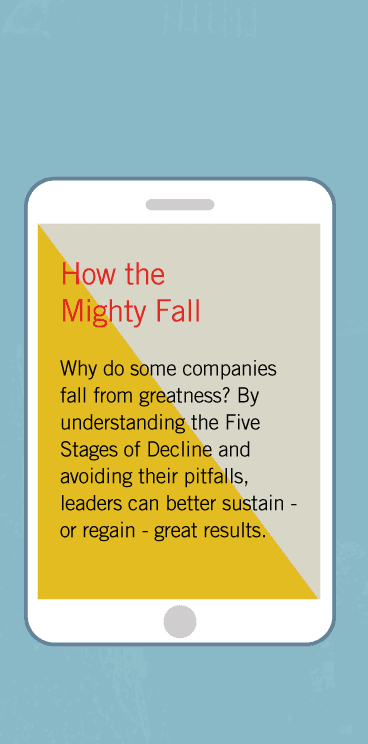Drucker & Me - Bob Buford
This is a wonderful little book by one of Peter Drucker's very best students. Bob Buford tells the story of reaching out to Drucker, learning directly from the master himself, and how he applied what he learned to change lives. It is exceptionally well-written and provides a glimpse into the secret sauce of how a truly great teacher can have an impact on the world through a truly great student. Bob laces together a short biography of Drucker with Bob’s own personal autobiography, while also sharing some of Drucker's most important lessons and observations in an incisive way.
Peter Drucker was a prolific genius. He published in excess of ten thousand pages across hundreds of articles and more than thirty books, packed with astute observations and penetrating insights. Thoughtful leaders know that they should engage with Drucker's ideas, but the sheer overwhelming volume creates a significant practical problem: where to begin, and how best to access his teachings? If you have not yet jumped into the vast ocean of Drucker’s ideas, this would be a superb starting point. And if you have read Drucker, this book adds a unique perspective; if you’ve ever wondered what it would be like to have Peter Drucker as a personal teacher and mentor, this memoir gives a rare and authentic glimpse of that experience.
As I enjoyed reading Bob’s engaging story, I noted three primary elements of Peter’s teaching impact. First, he pushed his students to think for themselves, rather than simply telling them what to think. Peter would ask Bob to write a long letter to him prior to their annual meetings, forcing Bob to think rigorously about the challenges he faced. Then, Peter would begin his teaching sessions by pushing and challenging not with points and ideas, but with questions. Peter’s greatest teaching came not in giving answers, but by pushing and challenging with the right questions. He wanted Bob to think for himself. And because he taught like Socrates, Peter learned at least as much from his students as his students learned from him, a secret to his own continuous self-renewal. The greatest teachers begin with humility, a belief that only by first learning from their students can they be of greatest service to them.
Second, Peter changed not just the minds of his students but their lives and, through them, the lives of other people. Think of a student like a vector heading out into time and space; if you can change the trajectory of that vector even a little bit, those small changes will turn into a large sweeping arc years down the road. And then if that vector in turn changes the trajectory of tens or hundreds or thousands of other vectors, then a teacher can have a multiplicative impact on the world. This is exactly what Drucker-as-teacher did. He changed student lives partly by setting audacious standards for the best students, such as challenging Bob to make his second half of life more significant than his first half, obliterating any desire Bob might have for retirement. Drucker challenged Bob to “transform the latent energy of American Christianity into active energy”—no small task—and thereby launched Bob on a quest that would consume his most creative and productive years.
Third, Peter got a high “Return on Luck” with the right students. I've become fascinated with the question of luck, and its role (or lack thereof) for those who achieve exceptional results. It turns out, when we rigorously defined and quantified luck, that the best-performing leaders and their companies were not luckier – they did not get more good luck, less bad luck, better timing of luck, or bigger spikes of luck than the less-successful comparison cases in our research. However,they did achieve a higher return on luck. They took whatever luck events they got, whether good luck or bad luck, recognized them, seized them, and made more out of them than others. The question for all of us is not whether we will get luck, but what will we do with the luck that we get. How does this relate to Peter Drucker? Think of it this way: For a teacher, one of the most important luck events is when a great student crosses your path; then upon recognizing when he or she is blessed by the unexpected arrival of a great student, a great teacher invests 10x in that student. Peter Drucker realized that a significant teaching investment in Bob Buford would yield a return far in excess of investing in the average student.
Drucker's impact derives not just from his ideas, but from his entire approach to ideas, and ultimately his power as a teacher. Drucker was deeply empirical; he derived insights not by pure theory, but by looking at actual facts and building a theory based on facts, evidence, and practicality. Once when I asked Drucker the purpose of his consulting, he said, "Ah, that is my laboratory." He didn't just want to sit around and think big thoughts; he wanted to derive insights that would have a tangible impact on people's lives. Yet, while Drucker focused on tangible results, he elevated his teachings to a frame much larger than "how-to" mechanics. "He diverted my attention from the nuts and bolts of running a business," writes Bob in these pages," and focused instead on the broader horizons of things such as character, vision, and responsibility." Drucker saw management – and its sibling, leadership – as a liberal art, not a technocratic exercise.
I believe that Drucker's work was guided by one audacious overarching question: What does it take—what principles are needed—to make society both more productive and more humane? Bob Buford once told me that he believed Peter Drucker contributed as much to the triumph of freedom over totalitarianism as anyone, including Winston Churchill. At first, I was puzzled by Bob's rather extreme statement, but then came to understand and appreciate that he might well be right. For free society to function at its best—and to thereby compete with tyranny—we must have high-performing, freely-operating organizations spread throughout society; these autonomous institutions, in turn, depend on having excellent management. This is a classic Druckerian duality, linking together big and small, practical and philosophical, micro and macro; on the one hand, he stayed grounded in “what works” for managers, and on the other hand, he framed “what works” in the context of one of the most important long-term questions that human societies must address.
Finally, and most important, Drucker infused all of his work with the great compassion and concern for the individual, and this is the cornerstone of what made him a great teacher. I do indeed believe that Drucker’s body of work is essentially right, that his insights about the workings of the social world have been—and will continue to be—proved right by history. But there is one place where I believe Peter Drucker got it wrong, at least in part. When Bob Buford asked what could be done to advance Peter’s legacy, Drucker impatiently waved the question away: "My legacy is my writing." True, but incomplete. An equally significant legacy, in my view, may be found in his students, and their impact on the world. If Drucker had not been such a great teacher, if he closeted himself like a hermit with a typewriter, I believe his impact would have been profoundly stunted. And there is no better testament to that aspect of Peter’s legacy than this gift from Bob Buford, Drucker & Me.
Jim Collins
Boulder, Colorado
April 8, 2013






